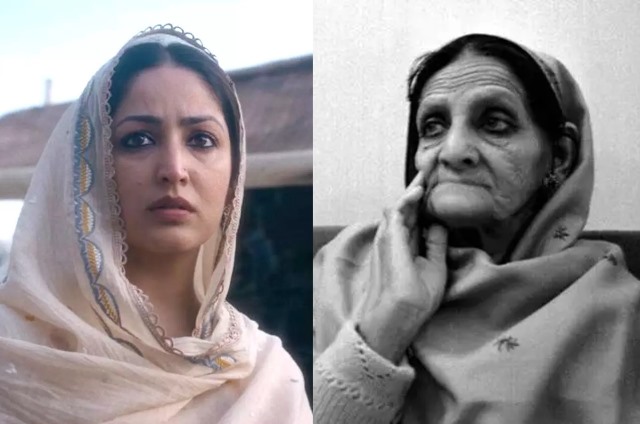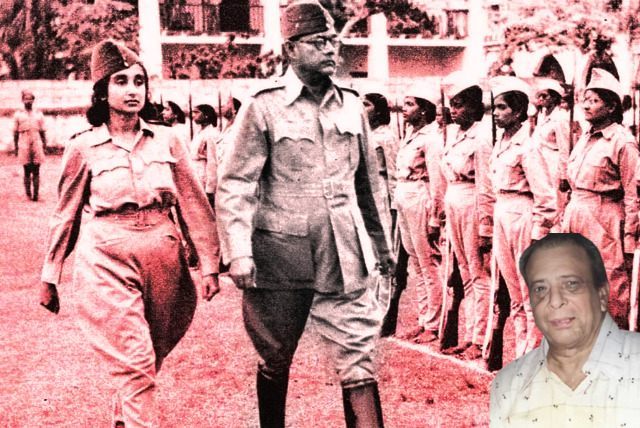
Haq: Women Rights And Historic Wrongs
It is daunting to write about the film Haq, currently being screened before appreciative audiences, in radically changed political times. The movie is ‘inspired’ by the Shah Bano case, which had triggered a nationwide debate four decades ago.
This is because the place of a woman in a tradition-bound society like India, irrespective of the social and economic status and the faith, remains uneven and is evolving. The Shah Bano case involved a woman from the minority Muslim community whose rights and identity were then and still are guided by clerics and the guardians of the Muslim Personal Law. They clash between faith-based and secular law, whose direction is sought to be determined by a government with a widely perceived majoritarian political agenda.
Briefly recalling the Mohd Ahmed Khan Vs. Shah Bano Begum case, a dispute between a twice-married lawyer-husband and an elderly lady, who challenged the manner of divorce and the denial of compensation needed for herself and her children’s upkeep. The Supreme Court upheld her plea and held that she should be paid beyond the period of iddat (waiting period a Muslim woman must observe after the dissolution of her marriage, either through divorce or the death of her husband, before she can lawfully remarry).
Influential sections of Muslims saw this as an infringement of their divine law and demanded that the apex court’s verdict be annulled. What could have been an innocuous family dispute, however, snowballed into a debate that acquired multiple overtones: Muslims versus non-Muslims (read Hindus), conservatives versus progressives among the Muslims, secular politics versus communal, political name-calling and of course, women’s place in a modern society.
Hark back to the debate in the Lok Sabha that this writer reported from the Press Gallery seat right above the prime minister. Muslim League member G M Banatwala moved a private member’s seeking annulment of the Supreme Court’s verdict.
The government’s initial reply opposing it came from Minister Arif Mohammed Khan. It was a sterling performance. His arguments generated a backlash from Muslim lawmakers who pressured the government to enact a new law. A well-meaning but politically inexperienced Prime Minister Rajiv Gandhi succumbed. The U-turn prompted Khan to resign. The Parliament passed the Muslim Women (Protection of Rights on Divorce) Act 1986.
The Congress, enjoying a huge parliamentary majority, and much of the opposition were concerned about the Muslim ‘constituency’ even as the BJP, accusing the Congress of ‘appeasement’ of the community, mounted a political offensive. Liberal sections were helpless as the opposition was ambivalent, more interested in cornering the government.
Some snapshots of those times: Apparently unaware, Rajiv Gandhi turned to consult his Muslim colleagues in the House when confronted with ‘triple talaq’ (Talaq-e-Biddat). The BJP members were ruthless in their criticism of Muslim ‘appeasement’. Saifuddin Chowdhury, a Marxist Member and a Muslim, was called “Satan’s progeny” by Ziaur Rahman Ansari, the new minister who was driving the government’s changed position. Syed Shahabuddin, an enlightened diplomat-turned-politician, was at the forefront of the ‘change’. He winced at the mocking suggestion that the legislation could be more appropriately named “Protection of Muslim Husbands Bill”. Aziz Sait, the Congress member, demanded the law, “even though I have a divorced daughter at home”.
ALSO READ: Triple Talaq Bill – Gender Justice or Political Agenda?
The controversy raged even as Gandhi was hit by the Bofors gun deal scam in 1987, and added fuel to LK Advani’s Rath Yatra and much that followed, reshaping the debate. The attempt to ‘balance’ the reversal of the Shah Bano verdict by facilitating the opening of the disputed Ram temple in Ayodhya meant that Gandhi and his party fell between two politically explosive stools.
About the film: Director Suparn S Varma deliberately ends on a victory note with the protagonist, Shazia Bano, making a fervent personal appeal, winning the case in the Supreme Court. He consciously excludes the huge political aftermath and avoids taking sides. But his footnote at the end credits the present government for ousting ‘triple talaq’, that many Muslim bodies think confuses the issues, not resolving them.
It is Yami Gautam Dhar’s film. She delivers a career-defining performance. Combining emotional depth and dignity, she masterfully brings the character to life: from quiet submission in a crumbling marriage to fierce courtroom defiance, there is no fumble in her flow.
Emran Hashmi, the ‘entitled’ husband, layers charm with quiet cruelty, humanising a potentially villainous character without seeking sympathy. His ideological clashes with the system in the court feel authentic and intellectually charged.
Verma takes artistic licence and, apparently to dramatise the court battle, injects a human rights woman lawyer to plead for Shazia from the lowest to the apex court. But the part, though ably played by Sheeba Chadha, remains underdeveloped.
In reality, Shah Bano was primarily represented by Danial Latifi, a renowned advocate of his time, in both the High Court and the Supreme Court. The available records do not indicate that a woman human rights lawyer formally represented Shah Bano in court during the original case. However, many women’s rights activists and legal scholars, such as Flavia Agnes and Sona Khan, were involved in the surrounding debate and subsequent legal challenges to the new law.
Overall, the film keeps in mind the secular character of the Indian State. It initiates a healthy discourse about the religion, Islam in particular, vis-à-vis the individual, the State and the Constitution. That makes it one of the more relevant films made in recent times.
It should also agitate the minds of minority societies to chart out the future course as citizens in a secular country. Very appropriately, Shazia asks the court: “I am a good, devout Indian Muslim. Why am I being asked to choose between religion and the Constitution?” The nuances, legal, constitutional and of Islam, have been well presented.
India needs to adopt and implement a Common Civil Code to march ahead in this era of postmodernism. But if the Congress dithered during its decades in power, the BJP also, given the current schism in society, is unlikely to do it for fear of causing widespread unrest.
Relevant to even the future, Haq is a must-watch for members of the majority community as well. The treatment of women is important, irrespective of the faith and personal laws. The film is actually a prologue to the larger story that is still unfolding in India.



